How to get an apricot tree to fruit – 3 expert tips for growing this sweet, orange fruit
It's easy to create the optimal fruiting environment for apricot trees
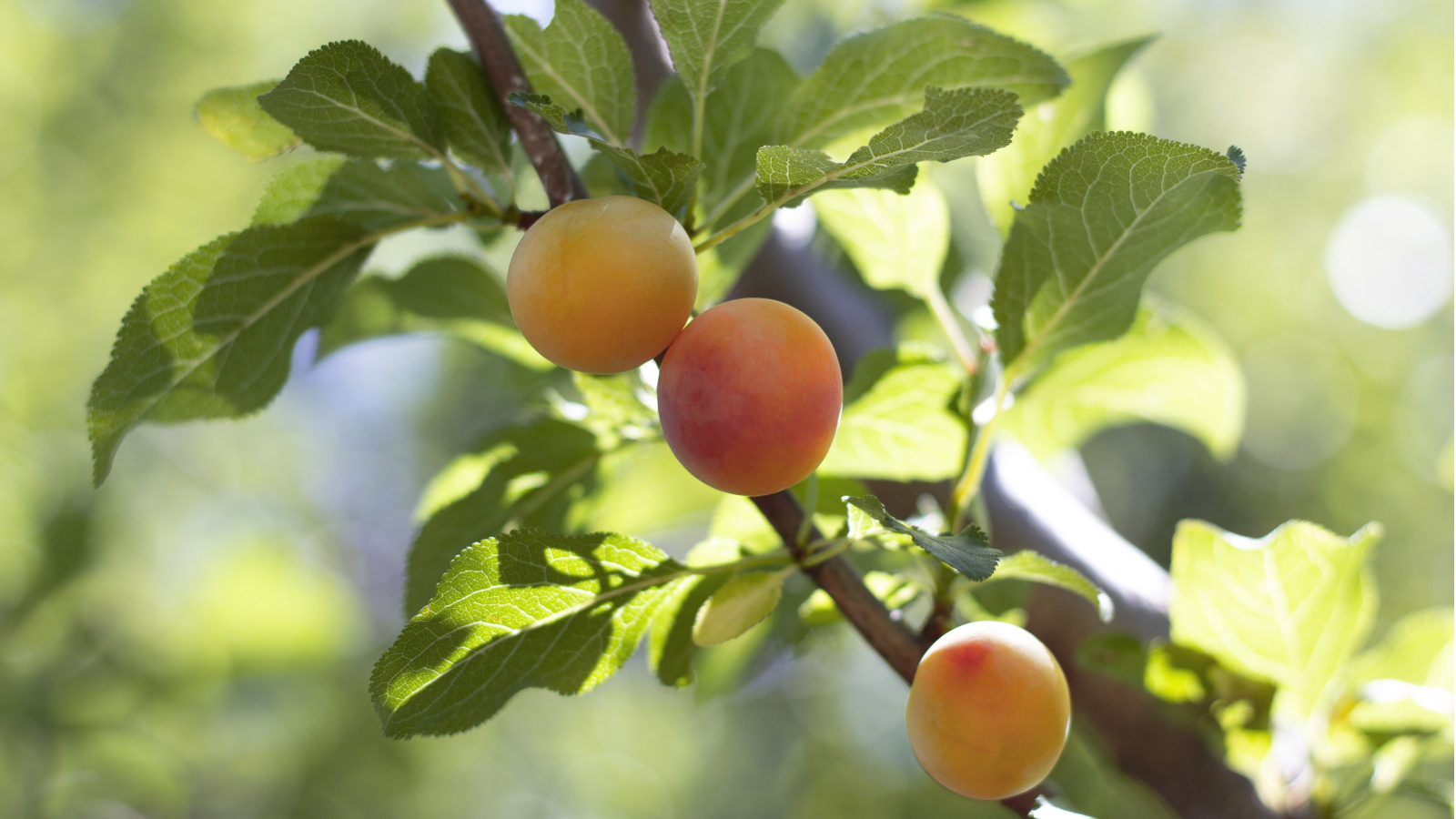

Apricots are a versatile fruit to grow in your backyard - eat the crop as fresh fruit, use it to make jam, or dry it for a sweet snack. With so many delicious uses, it can be disheartening if your apricot tree isn't fruitful.
The good news is it's quite straightforward to grow an apricot tree in a range of climates, with some varieties being suited to milder climates. However, just like getting a mulberry tree to fruit, if your tree isn't growing in the right conditions, it's unlikely you'll receive an abundant harvest.
If this sounds familiar and you're struggling to get an apricot tree to fruit, look no further. Our three expert tips will help you successfully grow apricots.
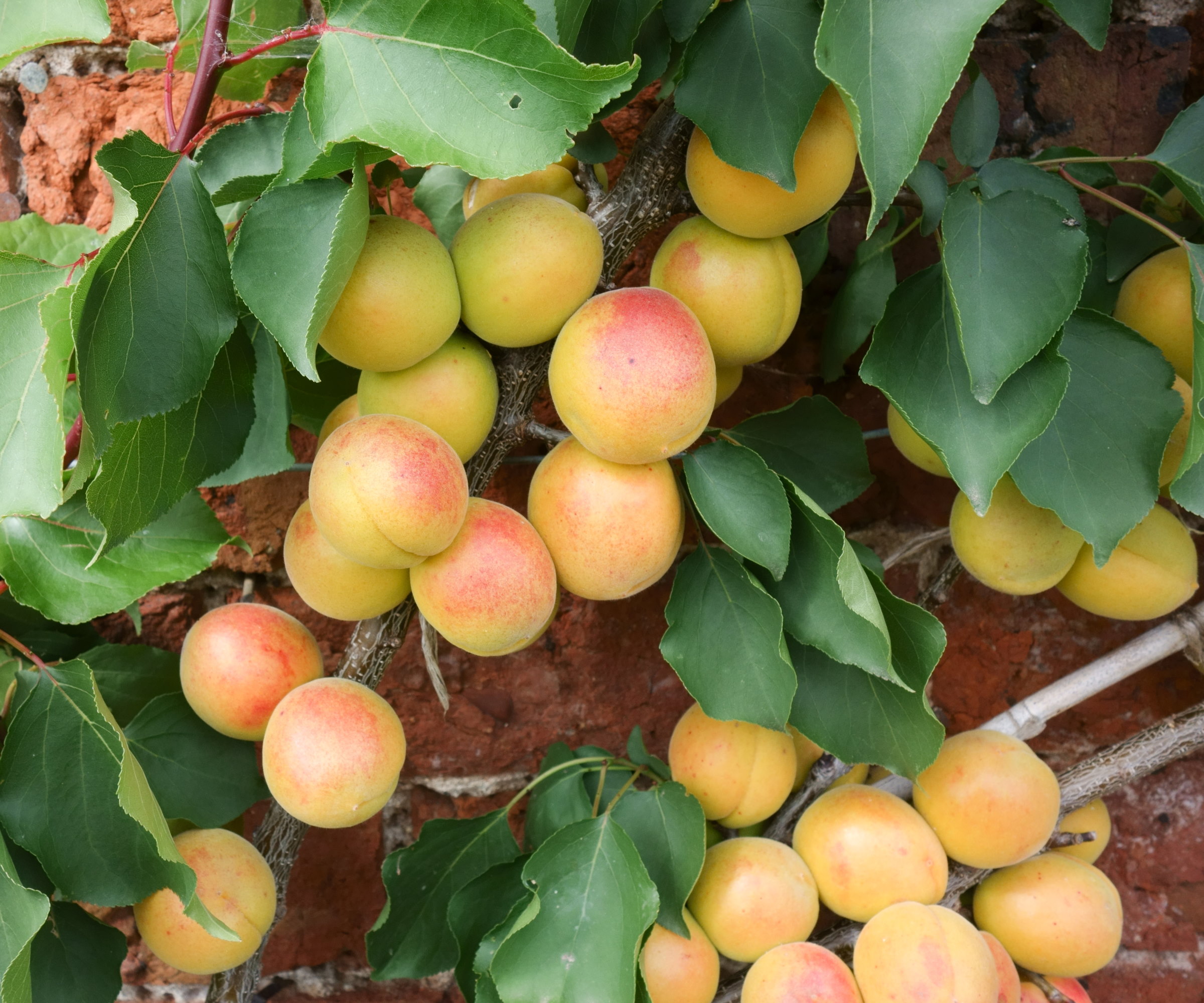
3 ways to get an apricot tree to fruit
Apricot trees will start to fruit between the age of two to four. So, if you have a newly planted, young apricot tree, don't be surprised if you don't harvest fruit for the first few years. Something else to note is apricot trees are hardy across US hardiness zone four to zone nine, with different varieties doing better in different climates. With that being said, here are a few things you can try to get an apricot tree to fruit:
1. Provide your apricot tree with full sun
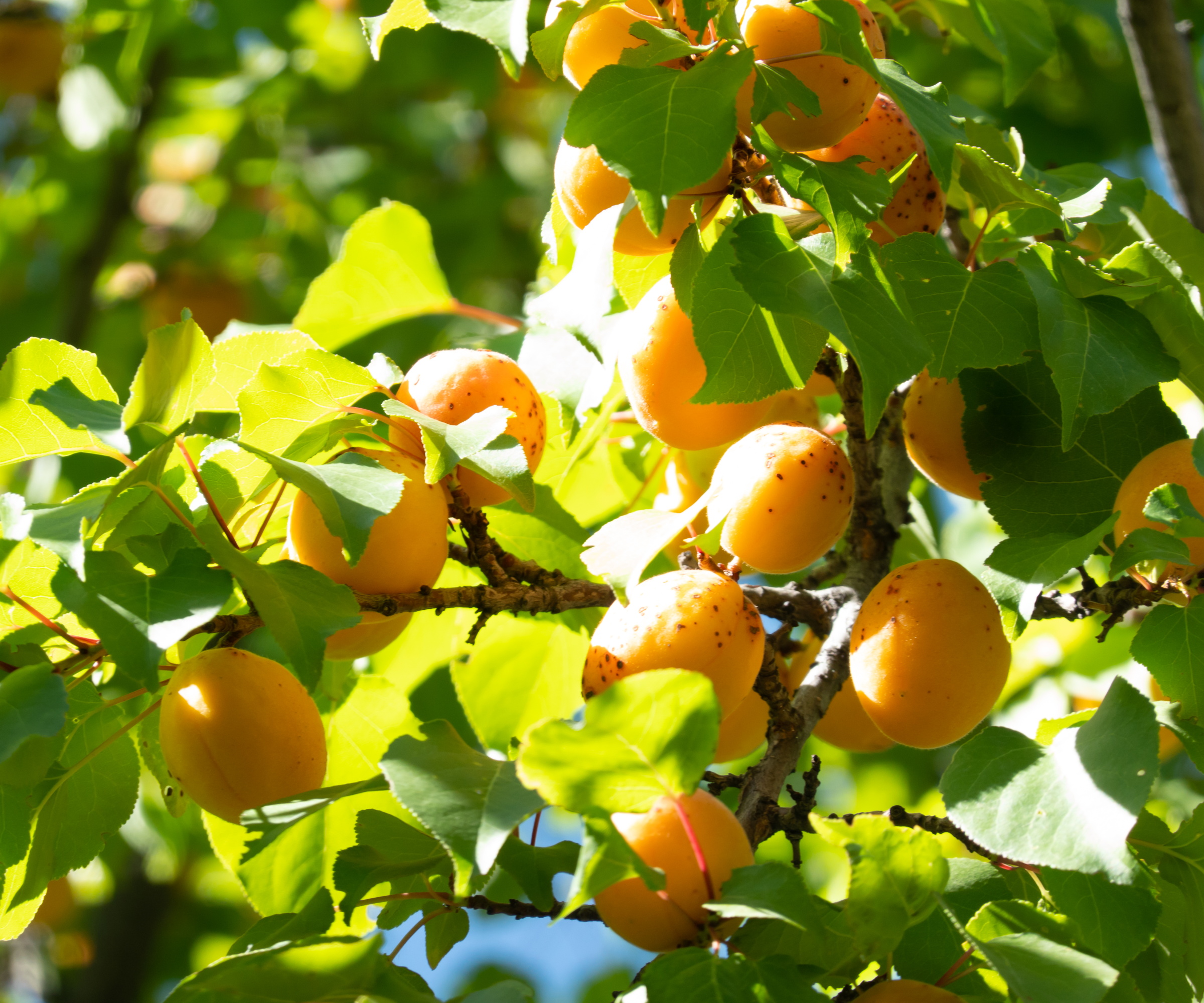
It's no surprise that like other fruit, apricot trees grow in very warm environments. And just like getting a pear tree to fruit or getting an avocado tree to fruit, apricot trees require direct sunlight for fruiting.
'Most fruit and nut trees love the sun,' says gardening expert David Burrows from Arkearth. 'Most, including apricots, require six to eight hours of full-sun for the tree to properly grow, bloom, and produce fruit,' he adds.
Of course, if you're growing a small apricot tree as an easy fruit tree to grow in pots, it's much easier to move it to a sunnier spot - like a south-facing garden wall.
If, however, you have a larger apricot tree planted out in your yard, being able to provide more access to sunlight can be challenging. Try pruning tree branches on surrounding trees that are blocking light to your apricot tree to help with this.

David is managing director at Arkearth, an organisation running projects to save pollinators. He advises on a range of gardening matters.
2. Protect your apricot tree from frost
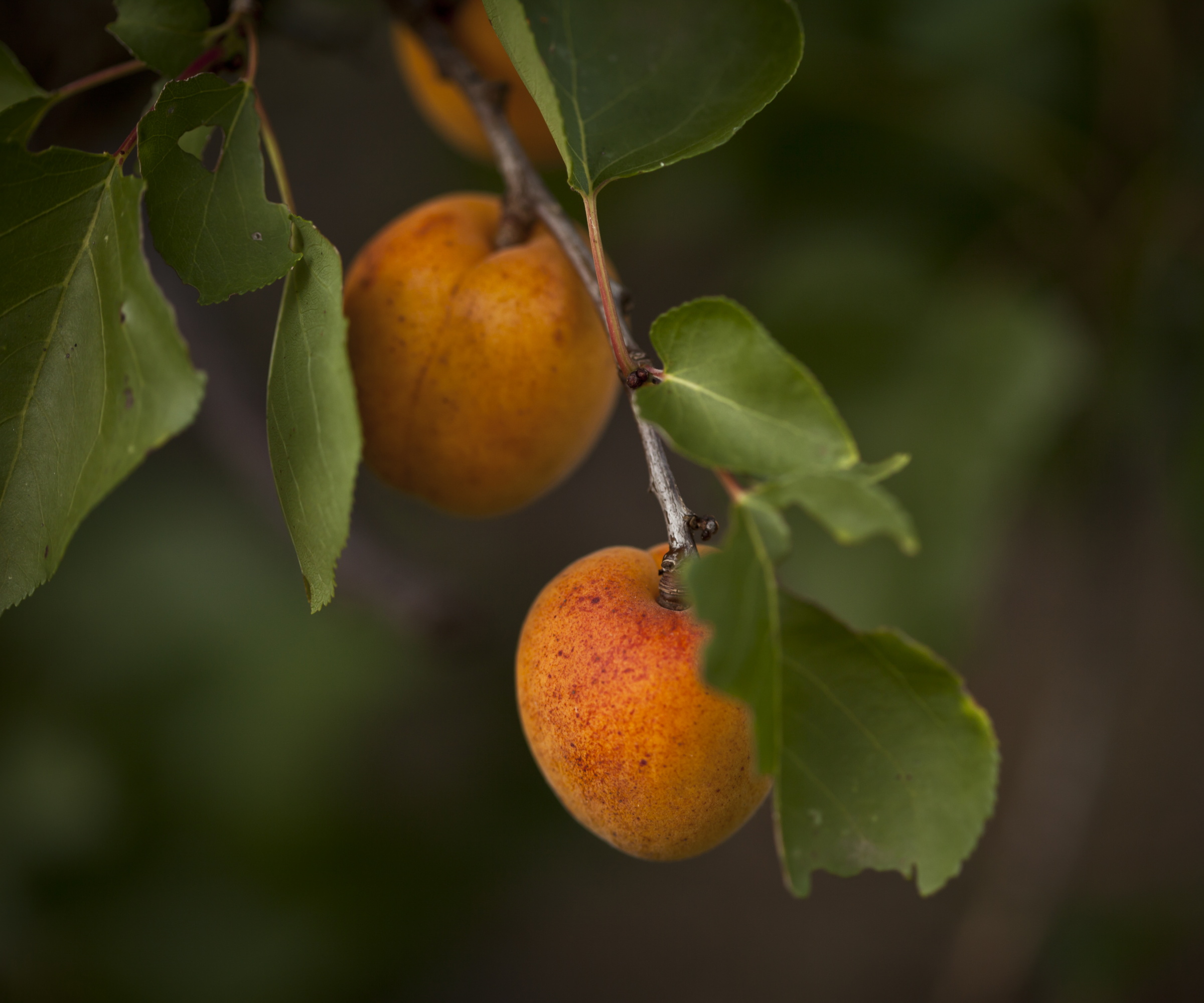
There are lots of methods for protecting plants from frost that you can use for apricot trees, as these trees aren't frost-hardy. Failing to do so can impact the health of your apricot tree and it's ability to fruit.
'An apricot tree’s ability to fruit is closely tied to temperature,' notes gardening expert Valeria Nyman. 'Frost during flowering can be disastrous and too much heat can stress the tree, leading to fruit drop,' she adds.
Apricot trees tend to flower in early spring and need to be protected from late frosts to prevent flower buds falling off. Without flowers, the tree can't be pollinated, and without pollination, it won't bear fruit.
To protect your apricot tree from late frosts, use a frost cloth - like this one from Amazon. You can alternatively use bed sheets to protect plants from frost.
The best thing to do is keep an eye on the frost forecasts in your local area and put precautions in place accordingly to protect your apricot tree's emerging flower buds in early spring.

Valeria is the Chief Product Officer at Taim.io, an innovative platform that serves as a personal, adaptive gardening coach, offering weekly advice to users
3. Amend your apricot tree's soil pH
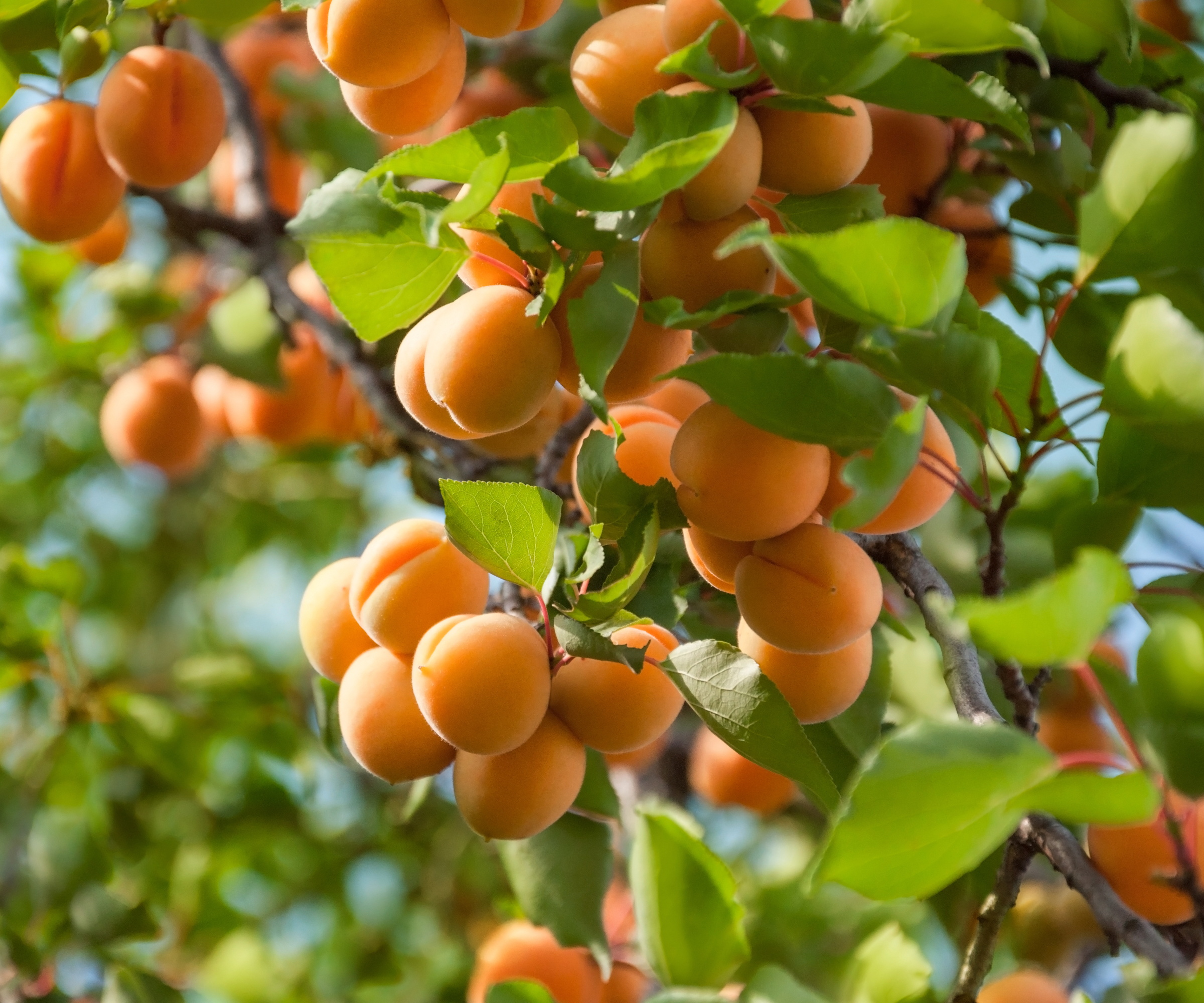
Not only do apricot trees need all the essential nutrients for plant growth, they also require a certain pH level; too high or too low can hinder fruiting.
'They prefer a pH of 6 to 7.5 or a neutral pH level,' David notes.
You can identify your soil pH, soil type and overall soil health with this soil test kit from Amazon.
If you find your apricot tree is growing in alkaline soil and you need to make your soil acidic, try using this ammonium sulfate from Amazon. On the other hand, if your soil is too acidic, use this dolomite lime from Walmart.
Likewise, David notes the soil should also be well-draining: 'A sandy soil mixture would work well,' he says.
FAQs
Are apricot trees self-pollinating?
Apricot trees are self-fertile, meaning they're able to produce fruit without needing another tree nearby for cross-pollination. However, apricot trees do benefit from pollinators in spring when they flower. 'Apricots are self-pollinating, but you’ll still get better yields with a second tree nearby,' says gardening expert Valeria Nyman.
As well as trying these methods to get an apricot tree to fruit, make sure to prune your apricot tree in late winter or early spring, right before active growth kicks in. This will keep your tree healthy and encourage new growth, aiding fruiting.
Sign up to the Homes & Gardens newsletter
Design expertise in your inbox – from inspiring decorating ideas and beautiful celebrity homes to practical gardening advice and shopping round-ups.

Tenielle is a Gardens News Writer at Homes & Gardens. She holds a qualification in MA Magazine Journalism and has over six years of journalistic experience. Before coming to Homes & Gardens, Tenielle was in the editorial department at the Royal Horticultural Society and worked on The Garden magazine. As our in-house houseplant expert, Tenielle writes on a range of solutions to houseplant problems, as well as other 'how to' guides, inspiring garden projects, and the latest gardening news. When she isn't writing, Tenielle can be found propagating her ever-growing collection of indoor plants, helping others overcome common houseplant pests and diseases, volunteering at a local gardening club, and attending gardening workshops, like a composting masterclass.
-
 Diane Keaton's living room is proof that 'symmetry in interior design' is far from dated – this concept is still ingrained in our philosophy, but there's a twist
Diane Keaton's living room is proof that 'symmetry in interior design' is far from dated – this concept is still ingrained in our philosophy, but there's a twistSymmetry is a design trick used to create smart-looking spaces
By Jennifer Ebert
-
 How can you make an outdoor kitchen feel more luxurious? Designer tips on making this hardworking space extra opulent
How can you make an outdoor kitchen feel more luxurious? Designer tips on making this hardworking space extra opulentDiscover the strategies the experts use to give an outdoor kitchen luxury style
By Sarah Warwick